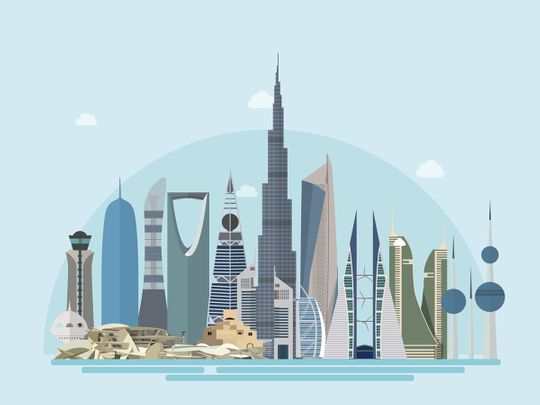
There are many a development from the recent past that is leading to a new multipolar world. However, the three summits held recently by Chinese President XI Jinping in Saudi Arabia represent the strongest and most prominent expression of this shift.
Trade between China and GCC countries has grown rapidly and hitting $230 billion, and make the Asian powerhouse the GCC’s leading trade partner. This is because of the economic and political influence of the GCC countries, and the fact that Arab states and China share many characteristics that make their cooperation of great benefit and reflect ell on the new alignment of global powers.
China has its global project - Belt and Road - initiative, a massive project that will reshape the map of trade and logistics routes and enable China to take control over them. Meantime, the Gulf states are located at the intersection of this vital project and already have the most advanced infrastructure - and one that is unparalleled in the region. Therefore, they can contribute to providing the China initiative with advanced services and facilities, over and above the growing trade exchange between the two.
Move away from one-sided alliances
This integration happens at a time when the approaches between the GCC countries and their traditional partners are diverging due to changing commitments. And reflect the attempts to impose agendas that contradict the GCC’s interests. This means there is now greater synergy between the GCC and China, which was confirmed by the Chinese President in his article published in ‘Al Riyadh’ newspaper.
He said: “Arab states are endowed with diverse resources, and have built industries with distinctive features, scored remarkable achievements in development, and demonstrated enormous potentials. The Arab civilisation advocates the middle way and moderation, encourages inclusiveness and mutual learning, opposes clash of civilisations, and is deeply rooted in its rich culture and history. Be it on the world’s political, economic or cultural map, Arab states always claim an important place.”
In response to these approaches, 34 investment agreements were signed between Saudi Arabia and China in green energy, including green hydrogen, photovoltaic energy, IT, transportation, medical industries, construction and housing.
Needless to say, the UAE already has several cooperation agreements with China, while Qatar signed a long-term agreement to supply China with natural gas.
The nature of these deals shows the importance the GCC countries attach to preparing their economies for the post-oil period, through economic diversification and ensuring large markets for their products in the future.
A joint investment council
During the China-GCC summit, the two sides agreed to set up a free trade area and establish a joint investment council, which in turn will reflect significantly on increasing cooperation between them. The GCC’s approach represents one of the most important global outreaches to the East - and emulated by some EU nations as well.
The German Chancellor visited Beijing at the end of last month during which he signed several economic agreements, despite criticism against him, including some criticism from his partners in the European Union (EU).
Africa states too are moving away from the traditional global powers, whose influence had grown for years in their former colonies, in favour of cooperation with emerging powers, most notably China, as well as the GCC countries, Russia and India, which are given preference in contracts.
Owing to common historical interests, the GCC countries are keen to continue their cooperation with European countries and the US. This reflects the wisdom of the GCC’s approach.
Not play off one another
This is because it is not required to establish relations with one party at the expense of another. Gulf’s policies consider global changes, the balance of power and the convergence of common interests with all powers.
The GCC policies are moving in two directions, the first is to make the most of global changes to establish relations with emerging powers. The second is the readjustment of ties with its partners in the West, a relationship that was marred by a lot of incomprehension in the past. This will bring great gains to the GCC countries in their quest for economic diversification and strengthen the independence of GCC’s decisions in all fields and to be consistent with their own interests mainly.












